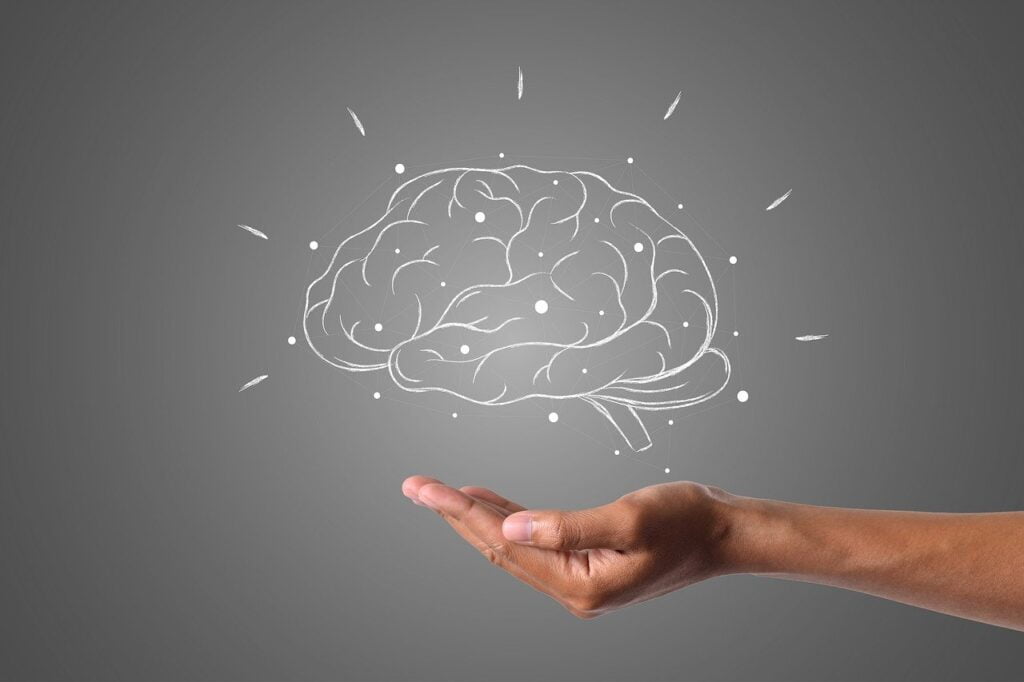- Home
- Types of Addiction
- Ketamine Addiction Help & Treatment
Ketamine Addiction Help & Treatment
Ketamine is a drug used in human and veterinary medicine for general anaesthesia but also acts as a depressant and hallucinogenic when consumed by humans.
It is used as a recreational drug by many people because of the unique experience it provides, which are often felt within 15 mins and these effects tend to last for one hour.
As a drug Ketamine can be inhaled, injected, mixed with drinks or smoked with other drugs such as marijuana or tobacco.
Symptoms of Ketamine Addiction

Do you know someone who is worrying you by exhibiting a possible addiction to ketamine?
Try asking yourself the following questions.
- Are they often complaining of headaches, dizziness, mood swings, nausea or blurred vision?
- Do they exhibit signs of paranoia, panic attacks or a more aggressive than normal personality?
- Do they seem to be having memory problems or showing difficulty in breathing normally?
Sought After Effects Of Ketamine Users

People who take ketamine often have dreamlike and out of body experiences, indicating that ketamine is a substance that helps people dissociate from their present experience or even parts of themselves.
It is also capable of distorting the sense of time in the people who use it.
Taking Ketamine produces euphoria, anxiety and a pleasurable feeling of floating and being separated from the body.
Dangers Of Frequent Ketamine Use

If ketamine is used simultaneously with alcohol and other sedatives, then it can lower the rate of respiration and in the worst-case scenario, lead to a person entering a coma-like state.
It can also lead to neurological problems such as seizures, and cause issues with a person’s cardiovascular system.
Ketamine – Overdose Risk
Medical researchers have cited that there is a strong overdose risk with ketamine use.
Excessive consumption can lead to the body’s respiratory system being negatively impacted and at risk of breaking down.
Psychological Dependence

Despite being a powerful psychoactive drug, people who take ketamine do not become physically dependent on the drug or suffer from strong withdrawal symptoms.
Instead, it is the powerful painkilling and euphoric qualities of ketamine that risk inducing psychological withdrawal symptoms.
Like most pain-relieving, fast-acting drugs, people can develop a tolerance if it is used regularly.
People who have developed a psychological dependence on ketamine have come to rely on the effects of the drug, as it provides them with psychological relief from their daily lives.
Ketamine – Physical Withdrawal Symptoms

People who become addicted to the drug do not tend to suffer strong physical withdrawal symptoms.
Although symptoms can be erratic -as there appears to be a lack of consistency in the reported experiences of users- the physical withdrawal effects are not considered to be life-threatening.
Ketamine – Psychological Withdrawal Symptoms

The psychological symptoms associated with ketamine withdrawal can be very challenging to deal with, and patients may become emotionally unstable in the early stages of treatment.
Research suggests that withdrawing from ketamine is unpredictable as people can experience challenging psychological withdrawal symptoms when they cease taking the drug after continued use.
People who stop taking the drug after heavy use tend to display psychotic traits, and experience anxiety, depression and flashbacks.
They will need support to manage and develop the skills needed to resist the strong cravings they may experience.
Ketamine Addiction Treatment

Most treatment centres have a vast amount of experience in helping people recover from being addicted to many drugs, including ketamine.
There is a wide body of pharmacological research and interventions that medical professionals draw when devising their ketamine rehab treatment programmes.
The areas they focus on include:
Psychiatric Support And Withdrawal Management

Due to the inconsistency in the psychological withdrawal symptoms different people experience when stopping ketamine use, it may be advisable for clients to be monitored by a doctor or psychiatrist.
These specialists may prescribe medication to treat the depression and anxiety that is apparent in the early stages of withdrawal when clients are psychologically vulnerable.
It may be necessary to monitor clients for days or weeks to ensure they are in a stable place to commence their programme of psychological therapies.
In an ideal situation, their treatment should take place in an inpatient setting as there is always a degree of uncertainty about how their brain and central nervous system will react when they cease taking the drug.
Psychosocial Therapies For Ketamine Addiction

Most treatment centres will use a biopsychosocial approach to treating clients with ketamine addiction.
This involves developing a range of biological, psychological, social and educational interventions for clients’ treatment programmes.
As well as having psychological therapies such as CBT and individual counselling, clients will also receive group therapy, follow the 12-step programme and take part in educational workshops relating to relapse prevention and assertiveness skills.
All of these components will cover many dimensions of a person’s life, which have been recognised as necessary for setting the foundation for recovery from addiction.
It is important for people to consider as many aspects of their life as possible.
This will allow clients to:
- Set firm boundaries to enjoy life and cut out any negativity.
- Find meaning in their life so they no longer seek gratification from taking substances.
- Seek spirituality and contentment in their lives.
- Remain physically fit and healthy.
- Have positive relationships in their life, where they feel valued and supported.
- Lead a healthy balanced life, and enjoy their job, recreational activities and their family and social lives.
- Are involved with, or have good links to the local community.
- Are in control of their thoughts and emotions.
Psychological Interventions

There is a range of psychological interventions that rehab centres use that will help clients address the psychological, emotional and social factors that will aid their recovery from drug ketamine addiction.
One-To-One Therapy
One to one therapy sessions are an important component of each client’s treatment plan, giving them the chance to address their addiction and its underlying issues in private.
There are many different types of therapy available, each of them offering something different to the clients, depending on their treatment needs.

Brief Interventions are short sessions where the therapist aims to educate the client on the harm that they are doing to themselves by taking ketamine and to initiate a dialogue with the client to explore their feelings about their drug use.
Motivational Interviewing is a behaviour change approach that is used when clients are showing a reluctance to engage with treatment, either at the start of the treatment or at any point once they have begun.
Cognitive Behavioural Therapy (CBT) will help clients understand and correct any negative thought patterns they may be exhibiting which might have set the foundation for their ketamine use.

Dialectical Behavioural Therapy (DBT) is an excellent therapy for helping clients deal with strong emotions that they are in danger of being overwhelmed by.
Clients will also receive regular counselling or psychotherapy sessions to help them process all the negative experiences in their lives that may have contributed to their substance use.
These sessions can help clients gain insight into the habits and processes which may be limiting their ability to move forward in their lives.
There are many types of counselling approaches available such as person-centred, psychodynamic, transactional analysis and gestalt, all of which come from a different theoretical perspective but can immensely benefit the client.
Group Therapies

Group therapy sessions are directed by a qualified therapist whose aim is to work on the individual processes of all the group members whilst simultaneously developing the group into a supportive unit where everyone feels valued.
All members will be able to learn about their own communication patterns through interacting with their peers in the group.
Other group members and the therapist will be able to provide each client with feedback on their communication style, which can be of great benefit to them.
Family Therapy
The systemic approach to human behaviour sees the family as a system.
If any person becomes psychologically distressed, then the system as a whole has played a role in causing it.
The goal of family addiction counselling is to help the family identify any unconscious negative patterns of communication that may have been present over the years.
The family may have several unconscious disputes which have never been fully resolved, or they may have avoided certain topics of conversation that are necessary for children’s healthy emotional and social development.
Social And Educational

Rehab centres also offer many educational, social and personal development workshops to arm clients with important knowledge they can use.
Relapse Prevention

It is important that while clients are in residential rehab -and therefore not in any danger of slipping back into substance use- they learn vital skills to help them resist the temptation to start taking drugs again when they leave rehab.
Rehab centres run relapse preventions workshops that encourage clients to reflect upon the specific situations, events and people in their life that may pose a threat to their recovery goal.
These are referred to as high-risk situations and by identifying them, clients can then discuss with their therapist several potential strategies they may implement to help them resist the temptation to use ketamine again.
Personal Development Components

Clients in rehab may also undergo personal development workshops which will help them become more assertive and be able to develop the skills and confidence to resist any social pressure from their peers to take ketamine.
They may also be encouraged to think of what kind of life they want to live, what job they would like to have and which recreational activities they would like to pursue, all of which contribute to a holistic approach to drug rehabilitation.
Support Groups

Narcotics Anonymous offer a supportive environment for people to establish contact with other people who have been through similar experiences and can offer them advice, guidance and encouragement as they look to overcome their addictive habits.
You can find a meeting close to you by looking on their website, which provides a list of all the meetings in the country along with the day, time and location of each meeting.
Most support groups are free to attend, and you can usually join one in your area without delay.
Whilst some are only available to people with substance addiction -and are therefore not facilitated by professional therapists– their approach is based on established AA principles which have helped countless people recover from addiction over the years.
Anonymity is one of the core principles of these support groups, so you will not be asked to reveal any personal details about yourself at any stage.
SMART Recovery
SMART Recovery is a charity based in the United Kingdom that has developed its programme to help people grow the psychological resilience, cognitive skills and personal development that are necessary to step away from substance use and live a more productive and meaningful life.
SMART Recovery tends to direct its focus on the present and the future, helping identify and correct any unhelpful thinking patterns that may prevent them from moving forward.
They do not focus on the past experiences of people who have become addicted to ketamine, but will instead arm them with knowledge, strategies and skills to help them feel empowered.
Get Help For Ketamine Addiction

Finding the right treatment service that can help you live free of an addiction to ketamine is often a complicated and time-consuming process.
If you need urgent help and are finding the wide variety of treatments on offer overwhelming, we are here for you.
Our ketamine addiction treatment assistance gives you:
- A free help and evaluation service to help you choose
- Guidance on the best treatment options for your unique circumstances
- Assistance in picking out the most cost-effective options
- Information on quality of care, best clinical practice and more
- Complete clarity so you can make the right choice of treatment
Call today in complete confidence on 08000 886 686 to take your first step toward a happy and healthy new life.



